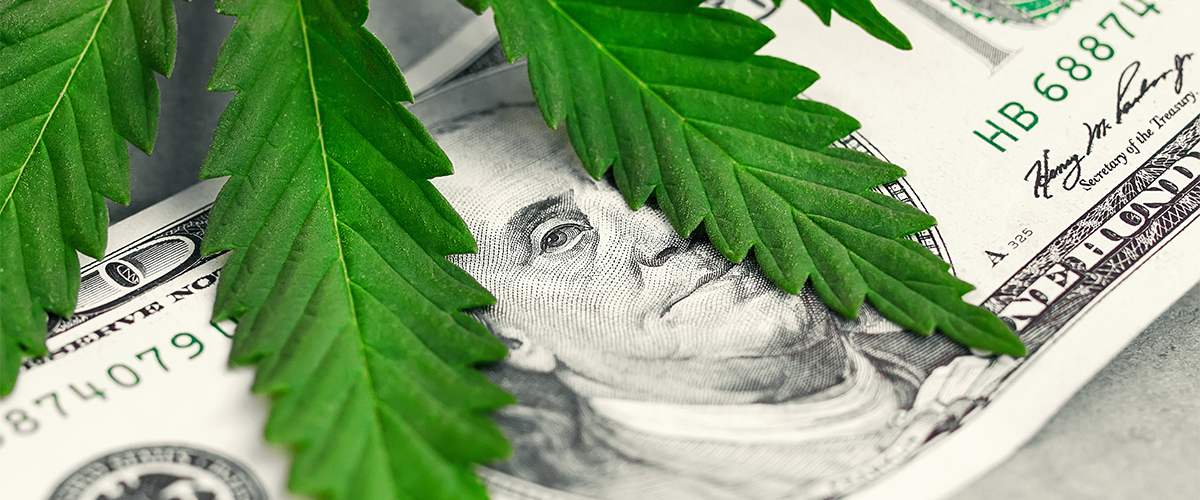State excise and cultivation taxes will go up in California at the beginning of the year, a move that some believe will be a blow to licensed businesses.
The California Department of Tax and Fee Administration (CDTFA) announced this month that it will be raising taxes on wholesale cannabis products including flowers and plants effective Jan. 1 to adjust for inflation.
The CDFTA is tasked with determining the average markup rate on cannabis taxes every six months to ensure that the tax paid is equal to 15 percent of the gross receipts, as required by California’s adult use marijuana law, Proposition 64.
According to the CDTFA’s website, “an analysis of statewide market data was used to determine the average mark up rate between the wholesale cost and the retail selling price of cannabis and cannabis products. Based on this analysis, effective January 1, 2020, the newest markup rate will be at 80%.”
The CDTFA’s upcoming markup will raise the state cultivation tax rates as follows:
- Taxes on dry flower will go from $9.25 to $9.65 per ounce (4.3 percent increase)
- Taxes on dry leaves will grow from $2.75 to $2.87 per ounce (4.3 percent increase)
- Taxes on fresh marijuana plants will go from $1.29 to $1.35 (4.6 percent increase)
These rates apply to cannabis that a grower sells or transfers to a cannabis product manufacturer or distributor.
“The purpose of the markup is to have the actual tax match the 15% gross receipts rate approved by voters,” CDTFA spokesman Casey Wells wrote to Marijuana Business Daily. “After analyzing thousands of transactions in the state’s Track and Trace system, CDTFA analysts have determined that the required markup rate for the period beginning January 1, 2020, is 80%.”
Imposing Tax Rates
The announced increase in cannabis tax rates is considered by many cannabis advocates and key stakeholders to be a blow to California’s legal marijuana industry.
California is home to the world’s largest marijuana market, but the state’s illegal market continues to thrive partly because of the hefty tax load placed on legal products. The latest tax increase will exacerbate price point discrepancies and potentially drive more consumers to the illegal market.
“Widening the price disparity gap between illicit and regulated products will further drive consumers to the illicit market at a time when illicit products are demonstrably putting people’s lives at risk,” the California Cannabis Industry Association (CCIA) wrote in a statement published in response to the announcement.
“The reason the black market continues to exist is that taxes are too high,” Jay Handal co-owner of Erba Markets, a Los Angeles-based dispensary, expressed to Forbes. “People are looking for the best value, and the government, both state and city, are woefully poor at shutting down black market stores. Raising taxes will only exacerbate the situation by continuing to keep black market store prices ridiculously lower than legal dispensaries that carry tested products.”
For consumers, “ultimately, they’ll feel that at the register,” Joshua Drayton of the United Cannabis Business Association told the Associated Press.
Californian legislators rejected a bill in the spring that would have lowered the tax on cannabis.
The author of that bill, Assemblymember Rob Bonta (D-Alameda), called the upcoming tax rate markup “short-sighted” and said that it “ignores the realities that licensed businesses are at the breaking point, with many struggling to survive.”
California’s Marijuana Laws
California passed adult-use cannabis legalization in 2016 and medical marijuana reform in 1996 by popular ballot referendum both times.
Under California’s recreational use law, adults ages 21 years and older can possess up to 28.5 grams of marijuana and 8 grams of concentrated marijuana. Adults are also allowed to grow up to six plants there.
California was the first state to permit marijuana for medical purposes. A wide range of conditions qualifies a patient for their program.
Cannabis Industry News
Stay up to date with the latest cannabis news by regularly visit our news page, where we publish weekly reports on cannabis business, policy, and scientific research.






